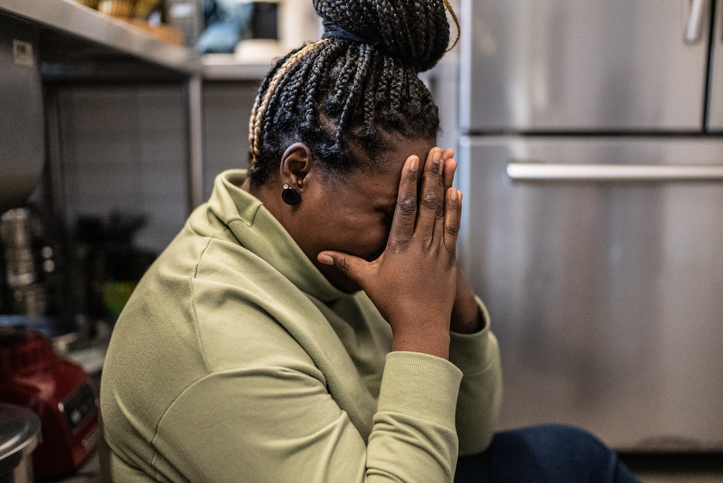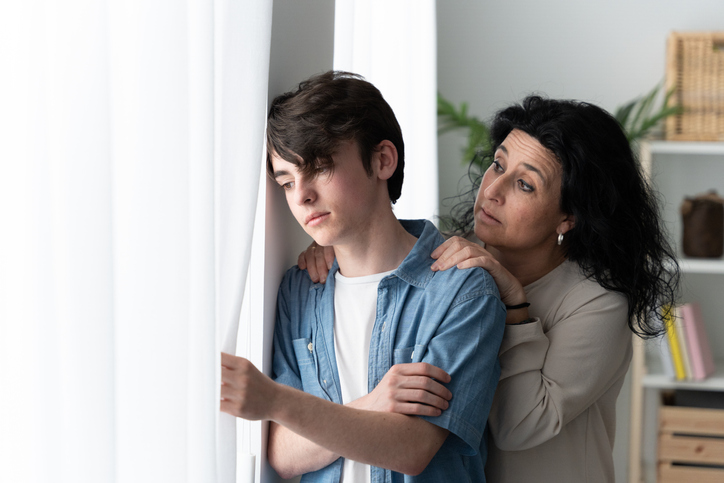Losing a parent at a young age is an experience that shapes you in big ways.

It’s a loss that leaves a deep impact, influencing everything from your relationships to your outlook on life. While everyone’s experience is unique, there are some common threads that connect those who have faced this early loss. Here are just some of the ways losing a parent young can affect your adult life.
1. You develop a heightened sense of responsibility.

According to Psych Central, growing up without a parent often forces you to mature faster than your peers. You might take on additional responsibilities within the family, like caring for younger siblings or helping with household chores. This early exposure to adult responsibilities can shape your sense of independence and self-reliance in adulthood.
2. You experience a deep sense of loss and grief that can resurface throughout your life.

Grief doesn’t have a timeline, and losing a parent young can create a lasting sense of loss. Even years later, certain events or milestones might trigger intense feelings of grief and sadness. It’s important to acknowledge these emotions and ask for support when needed.
3. You might struggle with trust and intimacy in relationships.

The loss of a parent can create a fear of abandonment or a belief that relationships are fragile and temporary. This can make it hard to form deep connections with people or trust that they’ll be there for you in the long run. Building trust and intimacy might require extra effort and vulnerability.
4. You might develop a fear of loss or change.

Experiencing the death of a parent at a young age can create a heightened awareness of mortality and the impermanence of life. This can lead to a fear of loss or change, making it difficult to embrace new experiences or take risks. Learning to manage this fear and find healthy ways to cope with uncertainty can be an ongoing process.
5. You might have a greater appreciation for life and the people in it.

Losing a parent can put things into perspective and make you appreciate the preciousness of life and the importance of cherishing the people you love. You might be more mindful of your time, more grateful for the relationships you have, and more motivated to live a meaningful and fulfilling life.
6. You might develop a strong sense of resilience and perseverance.

Overcoming adversity at a young age can build resilience and teach you how to cope with challenges. You might develop a “never give up” attitude, a willingness to fight for what you want, and a belief in your own ability to overcome obstacles.
7. You might feel a sense of isolation or difference from your peers.

Not everyone understands what it’s like to lose a parent young. You might feel like you don’t fit in with your peers or that they can’t relate to your experiences. This can lead to feelings of isolation or loneliness. Connecting with people who have experienced similar losses can be incredibly helpful and validating.
8. You might have unresolved feelings about your deceased parent.

If you lost a parent at a young age, you might have unresolved feelings about them, questions you never got to ask, or regrets about things left unsaid. This can be a complex and emotional issue to navigate, but going to therapy or counseling can help you process these feelings and find closure.
9. You might struggle with feelings of guilt or regret.

It’s common to question what you could have done differently or wish you had more time with your parent. These feelings of guilt or regret can linger for years and affect your self-esteem and decision-making. It’s important to remember that you were a child and couldn’t control the circumstances. Going to therapy or counseling can help you process these complex emotions.
10. You’ve never been able to form a clear identity or sense of self.

Parents play a significant role in shaping our identity and sense of self, Healthline notes. Losing a parent young can disrupt this process, leaving you feeling unsure of who you are or where you belong. This can lead to a lifelong journey of self-discovery and exploration as you try to define yourself and your place in the world.
11. You might have a different perspective on family and relationships.

Growing up without a parent can alter your expectations and views on family dynamics and relationships. You might be more independent and self-reliant, or you might crave closer connections and look for surrogate parental figures. Your experiences can shape how you approach and navigate relationships throughout your life.
12. You might develop a heightened awareness of your own mortality.

Losing a parent young can make you acutely aware of the fragility of life and the inevitability of death. This can be both a burden and a gift, prompting you to live more intentionally, cherish your time with loved ones, and make the most of every moment.
13. You might experience a delayed grief reaction.

Sometimes, the full impact of losing a parent doesn’t hit you until later in life. You might have suppressed your grief as a child, only to have it resurface as an adult. This can be a confusing and overwhelming experience, but going to therapy or joining a support group can help you process these emotions and find healing.
14. You might be more sensitive to other people’s pain.

Having experienced the pain of loss firsthand, you might be more empathetic and understanding towards people who are going through difficult times. You might be more inclined to offer support, lend a listening ear, or simply be there for someone who needs it.
15. You become a strong advocate for people who have experienced loss.

Your personal experience can inspire you to help people who have lost a parent or loved one. You might become a mentor, volunteer your time to support grieving families, or simply offer a listening ear and a shoulder to cry on. Sharing your story and offering support can be a powerful way to heal and connect with people.



